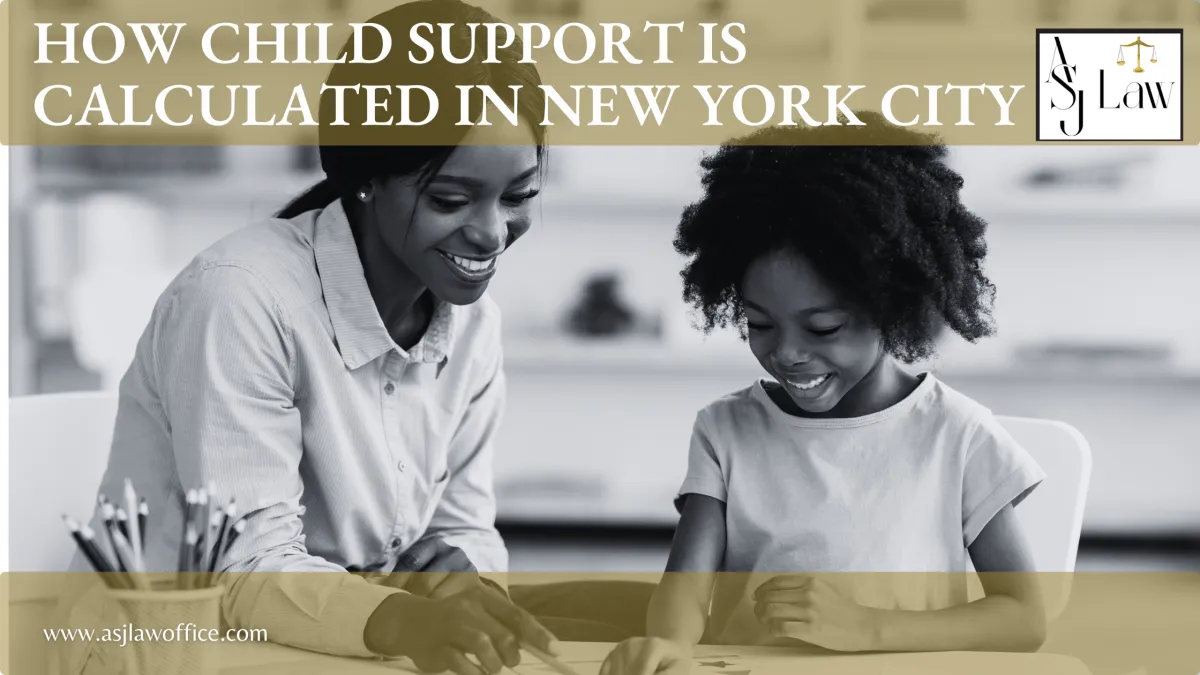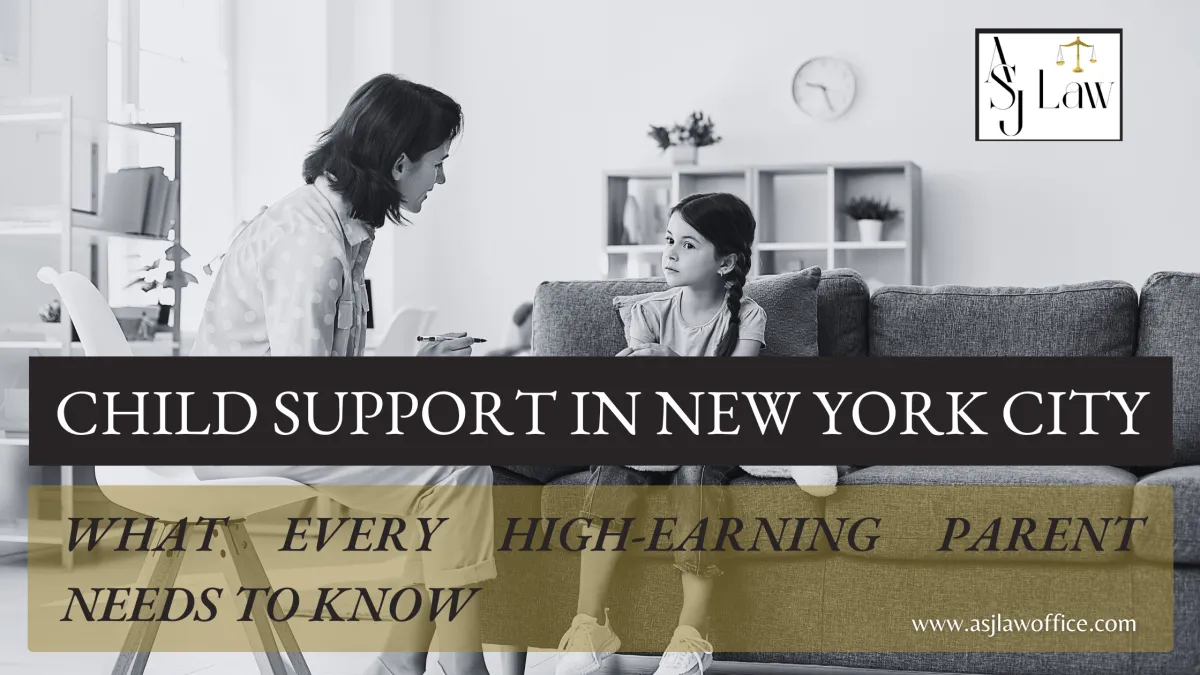
ASJ Law Office Articles
What Child Support Covers in New York City
Perhaps, as a high earner, you're concerned about exceeding your fair share of expenses. Or maybe you’re frustrated because your friend recently had a child support case, and you thought, “I could just ask her what she did.” But the truth is, every case is different. New York has its own rules for child support, and what it covers might surprise you. Let’s walk through this together so you know exactly what child support includes, how it’s calculated, and why relying on someone else’s story won’t give you the full picture.
Why Must I Pay Child Support if We Have 50/50 Custody in New York City?
“It’s not fair. We split time 50/50, so why should I pay child support?” That frustration is very common. If you share equal custody of your child in New York City, it may seem logical that neither parent should pay child support. After all, you both spend equal time caring for your child. So why is the higher-earning parent often still asked to pay? Let’s walk through this together and explore why New York law may require child support even in a 50/50 custody arrangement, especially when one parent earns more.
How Child Support is Calculated in New York City
Dealing with child support issues during a divorce or separation can feel overwhelming. You may be worried about how much you'll have to pay. That is a common concern among high-income parents in New York. Perhaps you are thinking, "My friend recently had a child support case. I could just ask her what she paid?" It is natural to look for a quick answer, but child support in New York City is not one-size-fits-all. Every family’s situation is unique, especially when significant incomes are involved. Let’s walk through how child support is calculated in New York City, especially for high earners.
Child Support in New York City: What Every High-Earning Parent Needs to Know
She leads teams. She makes million-dollar decisions. She balances board meetings, motherhood, and building her wealth. But no MBA or leadership seminar prepares her for the moment she realizes her marriage is ending. Imagine this for a moment. You are working long hours in your corner office, carrying the weight of a demanding job, making sure your children have everything they need. But when your relationship shifts and the conversation turns to child support, suddenly things feel uncertain. You start asking questions you never thought you would need answers to: How does child support work in New York City? How do you put a co-parent on child support? What happens if your income is higher than average? You are not alone in asking these questions. Thousands of high-earning parents in New York face the same challenges every year. The difference is that most people only see child support as a bill or an argument. In reality, it is a legal framework designed to protect children and ensure stability. The truth is that child support in New York is as much about strategy and clarity as it is about numbers.




